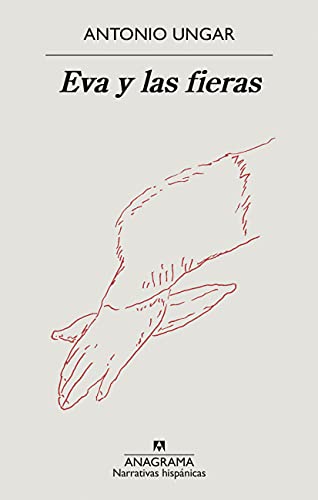
Antonio Ungar: "Fiction is a way of telling reality"
In his latest novel, 'Eva y las fieras,' the Colombian writer tells a story of violence, corruption and love in the Latin American jungle.
Antonio Ungar believes that Colombia's turbulent history can only be understood through fiction. That is why, when he decided to write a novel about the violence that shook the jungle of his country in the 1990s, he chose to do so through a fictional character: Eva, a young city girl, upper middle class, "very into partying, alcohol and drugs" and with a little daughter from an unknown father, who decides to move to the jungle, trusting that she will thus be able to discover a new way of seeing the world and stop being "lost."

However, what Eva does not know is that in the jungle, she will not only find surprises in nature, but also war, a masculine and very violent world.
"And it's a bit like that, Colombia, so rich in terms of nature, and at the same time so fragile because of the war, so many traumas, wars, deaths and injustices," explained Ungar in a talk at Casa America Barcelona at a presentation of his newest novel, Eva y las fieras (Eva and the wild beasts), in December last year.
Set in Colombia in the late 1990s, a country torn apart by the war fomented by the State, paramilitaries, the military and guerrillas, this story can be read as a metaphor for a country condemned to repeat its mistakes and make them worse, but also as a journey into the soul of Eva, a stubborn life that, like the jungle, refuses to shut up.
RELATED CONTENT
"If there is something about Eva that Colombia also has is that she has a very great strength and at the same time a very great fragility," Ungar commented during the talk.
Inspired by real characters, Ungar's fictionalized account of life in a port in the Orinoco jungle, on the border with Venezuela, an area that in the 1990s was dotted with a boom in illegal businesses, such as drug trafficking and gold smuggling, making it both a very vital and very problematic area.
"To write war chronicles you need a talent that I don't have, so I did fiction," he explained, admitting the influence of Gabriel García Marquez. "For me fiction is a way of telling reality."
The author continues to feel a great fascination for the Colombian jungle, an ideal region to create fiction, where "all those small communities isolated in nature, and all those city people going there looking for existential solutions to their lives," mix together. "A strange society is created," he concludes, where all the Colombian diseases coexist: racism, classism, injustice. "The jungle is like a mystery, it is very difficult to interpret, at least for the white man."
A regular contributor to magazines in Germany, The Netherlands, and the United States, Ungar is the author of the books Zanahorias voladoras (2003), Las orejas del lobo (2005) and, Tres ataúdes blancos, with which he won the Herralde Novel Prize in 2010. Tres ataúdes blancos (Three white coffins) is a farce in the key of black humor about a Latin American dictator in a supposed country, Miranda, which could be any country in the region.












LEAVE A COMMENT: